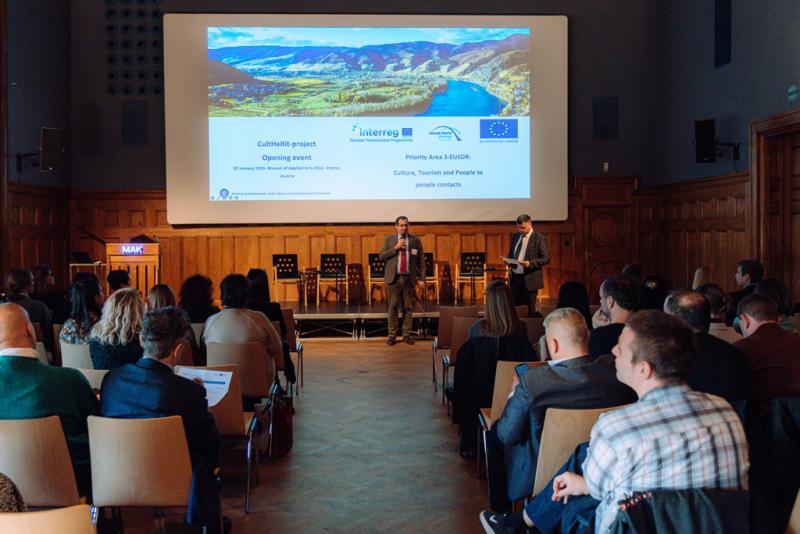A new EU project, CultHeRit - DRP0200630, kicked off in earnest with a launch meeting on 30 January. This took place in the Museum of Applied Arts, Vienna (MAK), with the participation of all the 13 partner institutions from the Central European region.
The Museum of Applied Arts, Budapest, as the lead consortium partner of CultHeRit in the Danube Region (DR), is determined to support young professionals starting work in the field of culture with mapping and implementing HR strategies to help identify imbalances in the labour market. The project involves eight countries of the DR region and 13 institutions. Austria is represented by the Museum of Applied Arts (MAK) in Vienna, Romania by the National Institute of Heritage in Bucharest, the National Museum for the History of Transylvania in Cluj-Napoca and the Bihor County Employment Agency in Oradea; Serbia by the Republic Institute for Protection of Cultural Monuments in Belgrade, the Inter-municipal Institute for Protection of Cultural Monuments in Subotica and the Serbia Trade Union for Employees in Cultural Institutions; Croatia by the Zagreb Museum of Arts and Crafts; Bosnia-Herzegovina by the Institute for Protection of Cultural-Historical and Natural Heritage of the Republika Srpska in Banja Luka; Czechia by the Museum of Decorative Arts in Prague, and Slovenia by the Research and Education Centre Mansion Rakičan.
During three years of co-operation, the partners will hire young professionals who will start working at each institution from 1 January, 2025. During this process, each new employee will be supported by a mentor. The goal is to examine the needs of newly arrived young professionals and to introduce an aspirational employment model that helps colleagues find long-term jobs within an institutional framework, thereby remedying the problem of an ageing generation of those working in the cultural sphere.
In order to monitor and evaluate the ongoing HR process, each partner institution will create a so-called Key Stakeholder Group (KSGs), which will consist of a local cultural institution, an HR agency, a national decision-making body, a non-profit association and an institute of higher education. Contact between KSGs and these local institutions will then be permanent.
The partners of the consortium will next meet in June 2024 in Cluj-Napoca, where strategic issues arising from implementing the first stages will be discussed. It is great honour for the Museum of Applied Arts, Budapest, to be the lead partner of CultHeRit, and thereby contribute to the integration of young professionals in the Hungarian and European cultural scene.



